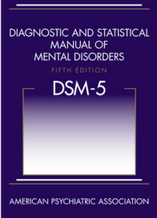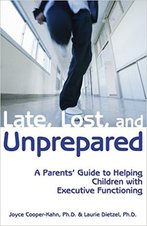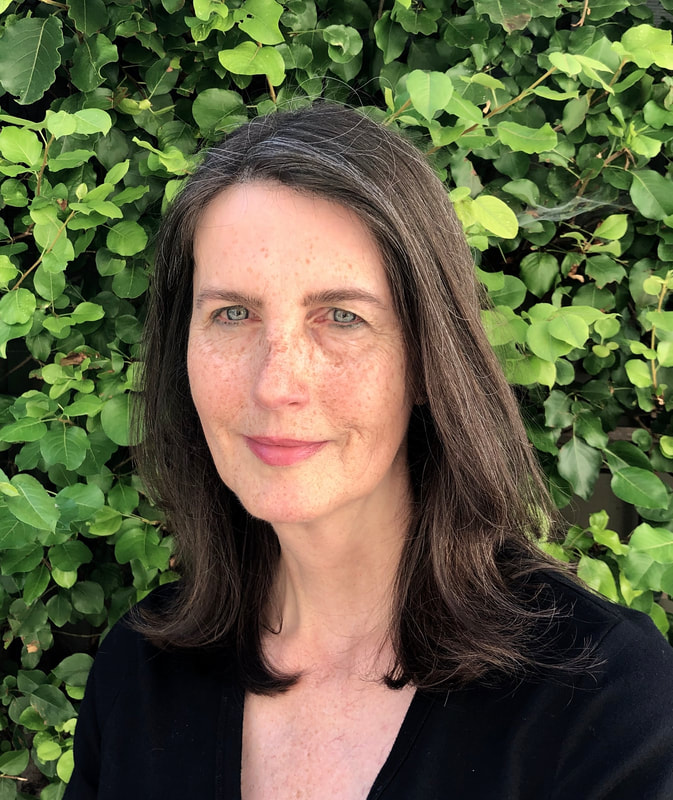|
Today is the day to be posting about events for young adults with Asperger's, Autism Spectrum, and ADHD! As I discussed more generally in an earlier post this afternoon, supportive programs can be the key to success for young adults who are in the process of leaving high school and entering into higher education, employment, or job training.
The College Internship Program, with locations all around the country, including Berkeley, CA, is offering a free panel discussion: Thinking Positive About the Future on Wednesday, June 26, 2013, at Foothill College in Los Altos Hills, CA. CIP offers support for young adults with Asperger's, Autism Spectrum and other special needs who are transitioning beyond high school. This panels features a discussion from experts, such as employments programs and educational experts. Please visit the link for more details and to see an introductory video. In my last post, I discussed adding general supports for transitioning young adults with Asperger's or on the autism spectrum. The Transition Options Program (TOPS) in Concord, CA is a great example of this type of program. The TOPS program, through the Mount Diablo Unified School District Adult Education, (open to students in other districts as well) offers support for social, employment, education, and living skills. As they describe in their flyer: "Social/Relationship Skills May include social stories/social thinking, communication and interaction, social/emotional behavior, relationships, problem solving, self-advocacy, stress management, managing transitions and change, support systems development, forming friendships, planning social activities. Executive Function in Independent Living May include problem solving/decision making, navigating daily life, time management, planning for independent living, home management, personal hygiene, cooking/nutrition, healthy living, money management, banking, paperwork organization, emergency preparedness, safety. Employability/College Readiness May include job applications and resumes, interview skills, vocational exploration, referrals, time management, organizational skills, navigating college application/registration/other processes, commitments, using personal organization technology. Community Access & Resources accessing social, recreational, educational and therapeutic resource" The Transition Options Program is putting on a Creativity Expo in Concord, this Friday, June 21, 2013. The TOPS Expo allows participants to showcase their creations and performances to the public. For young adults with Asperger's or ASDs, this expo is a great opportunity to learn more about the program, and for parents of ASD teens or adults, it's a chance to see what your child's peers are accomplishing. You can read some interesting stories of the individuals behind the scenes of the expo in the Contra Costa Times.
 For so many young autistic or ADHD adults who successfully negotiate high school, there's a bump in the road right after graduation. High school is quite structured, with a clear path to follow and few exceptions made. Accommodations are laid out clearly in an IEP. (We hope!) And, almost every peer is also attending high school. After graduation, so many adults with special needs struggle. Suddenly, that clear path of kindergarten, elementary, middle school, to high school branches out into so many options. College, junior college, year off, job training, or work? All the flexibility is wonderful, and challenging at the same time. As an example, while peers may be headed off to a four year college, many kids on the spectrum aren't ready for that level of academic rigor, or the life skills that college demands. While a junior college may offer more appropriate academics, the course load is flexible, which can be an advantage, or can provide too little structure. When students can skip classes, or drop them, or miss assignments without anyone overseeing, students may not be able to complete the courses. At the same time, junior colleges and job skills training programs don't offer a clear social structure. There are students of all ages living all over the region, and in all stages of life, from high school kids getting a little extra academics, to employed adults going to school at night. All that variety can make it hard for anyone to meet appropriate peers, especially for those who struggle with social skills. For many individuals, adding in some structured support can be transformative for special needs adults. It might be a social skills group, a more structured program, or work with a therapist or coach of some sort. This structure, combined with the flexibility of post high school eduction, can be the combination that brings transitioning young adults to success. I encourage any student who is struggling with making academic and job skills progress to look for an added source of structure to add into their program. My next few blog posts will highlight a few examples. Image attribution: by Serge Melki from Indianapolis, USA (Frozen tree branches Uploaded by russavia) [CC-BY-2.0 (http://creativecommons.org/licenses/by/2.0)], via Wikimedia Commons  It was just delivered in the mail, my brand new copy of the DSM-5. After all the reviews and discussion, I don’t think there are surprises about what’s in it, so much as questions. Some questions are potentially life changing, like: “How will the changes impact diagnosis rates?”, and “Will support services change for those previously diagnosed?” (A pressing concern for the Asperger’s community.) Other questions are less crucial, but still important to many, like: “For how many years will people use terms like Asperger’s and ADD?” (Considering that ADD, as opposed to ADHD, wasn’t even in the 1994 version, my guess is these terms will be used for a long time, especially since Europe will still use the term Asperger’s. Still, I renamed my earlier incarnation of this blog from Coach for Asperger’s as soon as I heard what the APA was planning. Other terms were already working their way out of common usage, like Intellectual Disability replacing Mental Retardation, so the DSM-5 will just move things along.) The new DSM-5 does more than just update the mental disorder map, it seismically shifts the landscape, with ripples that impact treatments, services, insurance, and education. As an example, the new category of Social (Pragmatic) Communication Disorder is a vast unknown to clinicians like me, since I can’t predict how often I’ll see clients with that diagnosis, nor if it will be used extensively to re-diagnose those who no longer fit into other categories. Helen Tager-Flusberg, in the Simons Foundation Autism Research Initiative special report on the DSM- 5, wrote an interesting review of the history of Social (Pragmatic) Communication Disorder from a research perspective, while John Elder Robison, on his Psychology Today blog, takes his straight-forward and practical analysis and discusses the issue that “we need to make a decision about what services will support people with the new diagnosis. Otherwise we risk doing that population a great disservice – giving them a diagnosis that leaves them nowhere, with no indicated services or therapy.” Simon Baron-Cohen also raises the issue of services for those with SCD, but in general praises the new DSM for its combination of social and communication symptoms into one category, as well as the addition of severity levels and intellectual impairment specifiers for autism. Within the same special report, Ari Ne’eman talks about the advantages of merging Asperger’s, PDD-NOS and Autism Spectrum, and how they could result in more school and Medicaid services for those formerly identified with Asperger’s. But far beyond these practical matters, are people: individuals, families, couples, from supportive self advocacy groups, like ASAN and GRASP, to parents support groups in so many communities, and even to how a wife thinks about her own husband’s emotional processing. Personal stories will be different, because of the words written in a 947 page book. How will the new DSM-5 impact you? The following applies to the use of material on this site. Please see Terms of Use on my website for additional information.
The Author provides the Site and the services, information, content and/or data (collectively, “Information”) contained therein for informational purposes only. The Author does not provide any medical advice on the Site, and the Information should not be so construed or used. Using, accessing and/or browsing the Site and/or providing personal or medical information to the Author does not create a therapist-patient relationship between you and the Author. Nothing contained in the Site is intended to create a therapist-patient relationship, to replace the services of a licensed, trained physician or health professional or to be a substitute for medical advice of a physician or trained health professional licensed in your state. You should not rely on anything contained in the Site, and you should consult a physician licensed in your state in all matters relating to your health. You hereby agree that you shall not make any health or medical related decision based in whole or in part on anything contained in the Site. Now that school is getting out for the summer, your family’s schedule may be a lot more relaxed. If your child has special needs, such as an Autism Spectrum Disorder, Asperger’s disorder, ADHD or ADD, organizational and executive functioning issues, or problems with social skills, the school year may have been extremely high stress. It’s great to be able to enjoy this more unstructured time, spend more time together as a family and take it easy. Without the pressures of school and homework, now is also the perfect time to help your child improve social skills for the upcoming school year.
If your child has been struggling with friendships, the summer months can be a great time for unstructured playdates. Many outdoor activities, such as playing in the pool, riding bikes, playing with water balloons or kickballs, are less organized and subtle than more conversational, indoor games. These can be a great opportunity for your child to interact with peers and have fun too. If your child struggles with basic athletic skills, such as swimming, bike riding, running or kicking, or even climbing on the monkey bars, the summer can be a time to work as a family to improve these abilities. Some kids really dislike sports, and have no interest in doing these types of activities, but school playgrounds do revolve around games. If your child can manage to participate, a new social avenue is opened. Kids who aren’t skilled at sports often don’t join in, and then their skills get even further behind. Playing as a family can remove the pressure that your child experiences in peer play. For kids who have spent the school year struggling with organization, the summer is the chance to catch up and get ready for next September. Work together to remove all of last year’s papers and books. Clear the desk and drawers so you have room to work in a more organized setting next year. This may seem far removed from social skills, but remember that the faster and more efficiently your child can finish homework, the more time there is left for other activities. Be sure to keep all these activities light and fun. Kids with special needs have worked hard all year, and so have their parents. You all deserve some time to enjoy each other. Image attribution: by Jairo [CC-BY-2.0], via Wikimedia Commons  Late, Lost, and Unprepared: A Parents' Guide to Helping Children with Executive Functioning ,by Joyce Cooper-Kahn, Ph. D. And Laurie Dietzel, Ph. D. is, yes, another book on helping kids develop executive function. But that’s not necessarily a bad thing. Different books (several of which I’ve reviewed here) on the topic offer similar ideas, but the details vary and one book may work better for your child than another. The first part of Late Lost, and Unprepared thoroughly explains executive function, breaks executive function down into a list of specific skills, and discusses the developmental aspects of executive function. If this is the first book you’ve read about helping your child, it’s certainly worth the time to read this carefully. The second half of the book, “What You Can Do About It”, is of value even to those who have read a number of other books on the topic of executive function. This book’s strength is in breaking issues down methodically. As a former engineer, I know that the best way to get to a solution is to deal with a series of simple issues, rather than one overwhelming problem. This book helpfully lists very concrete, specific issues for each category of executive functioning. For example, one chapter about impulse control addresses specific problems like interrupting others, hitting others, and running off in stores. A strength of this approach is that the authors present both short term and long term solutions. This is what every parent needs to remember, that executive skills improve with growth and maturity. While short term solutions stop disasters from happening, longer term solutions are what will be truly valuable to maturing individuals. Another strength of the book is that it discusses how parents can advocate for their child. It’s ideal for every child if all the people dealing with him can be working toward the same solutions. This book makes that idea straightforward and easy to figure out. Sex is a topic that isn't frequently discussed in connection to Autism Spectrum Disorders. There are a few books and several websites, but in general, sex is often an issue that gets overlooked. In the book Asperger’s From the Inside Out, author Michael John Carley discusses how issues around sex can be difficult for many adults with Asperger’s. Sensory issues, inadequate sex education, and difficulties with social skills can all contribute to problems in establishing and maintaining a healthy adult sex life. Therefore, I thought this topic would be a good place to turn to an expert.
In this repost of an earlier entry, I’m conversing with Isadora Alman, a Board certified sexologist and a California licensed psychotherapist and counselor. She’s the author of "Ask Isadora," a syndicated advice column on sex and relationships, which appears in newsweeklies nationwide, as well as the Sexuality Forum website. Patricia Robinson: For starters, can you please explain exactly what a Board certified sexologist is, and how they work with clients? Isadora Alman: As you know, the state of California licenses people helpers of several sorts: psychologists, social workers, and marriage and family therapists. All have their areas of expertise in people helping. There is no licensing for those who make sexuality their specialty so there are several professional organizations such as the American Association of Sex Educators, Counselors and Therapists and The American Board of Sexology who review the professional experience and expertise of those who do specialize and give them certification. A sex therapist or a sexologist (one who studies sexuality) will be knowledgeable in relationships and in sexuality because one generally takes place within the context of the other. I might work with clients who have little or no sexual knowledge or experience, making referrals and offering resources to gain know-how and confidence. If a client's sexual expression is not as satisfying as it might be, I will work with him or her in making suggestions to improve knowledge and skill. And, since communication is a very important part of finding a partner and enjoying sexual expression, I will also help with that. Patricia Robinson: I think lack of sexual experience and lack of confidence can be common issues for adults on the autism spectrum, maybe those who didn't get to experience dating and relationships when they were younger. How would you help a client who feels less experienced than peers? Isadora Alman: For social skills I don't think there's anything better than a mixed (men and women) support or therapy group. There's is almost always one nearby anywhere in the Bay Area. There one can get information, support and feedback from others without going on an actual "date" until s/he is ready. In matters of sexuality I strongly recommend educational explicit films put out by folks like the Sinclair Institute that show and teach all manner of sexual expression. I recommend a massage course to learn how to touch and be touched. I recommend weekend workshops such as the Human Awareness Institute's "Love, Sex & Intimacy". If a client would like, I can also make a referral to a sexual surrogate partner of either sex to learn hands on skills. Patricia Robinson: There is so much information on sex on the Internet, and there are many different types of people to work with. (Therapists, medical doctors, sexologists, surrogate partners.) How can my readers be sure that they're getting good, educational and ethical information and help, and not just wandering into a misleading or exploitive situation? Isadora Alman: The Internet is full of misinformation, it's true. Anyone can post anything. Unfortunately, there also exist people with degrees who may act unethically or have their own agendas, but usually membership in an accredited institution such as the American Medical Association or the American Association of Sex Educators, Counselors and Therapists is a fairly reliable endorsement. The very best endorsement is a referral from someone you know and trust who has used that person's services before. Ask around. Ask other professionals you trust to recommend someone. Sometimes the same name comes up as a resource from several sources. That's a good indication that this person is respected in his or her field. Patricia Robinson: Isadora, thanks so much for talking to me on this topic. I’m sure this is an article that will be useful to many of my readers. When is anxiety helpful, and when does it tip into that realm of being so distressing that it’s overwhelming? For many individuals, anxiety is too much and it prevents them from making good choices. All they want is for the anxiety to go away.
But the reality is that some anxiety can be a good thing. Anxiety alerts us that something is wrong, that something needs to change. Anxiety catches our attention. The key is knowing how much anxiety is the right amount. Anxiety needs to be managed so we’re focusing on what we need to do, but that it’s not shutting us down completely. I think of anxiety management as a two pronged approach. Sometimes, it’s important to deal with the emotion, bringing anxiety down so that more rational thinking and behavior is possible. In other cases, the goal is to be practical. Listen to what the anxiety is saying and take steps to remedy the situation. Frequently, the first step in managing anxiety is simply being aware of it. Once you're is aware of anxiety, simple steps can be taken in an attempt to bring it under control. For many people this involves deep breathing, progressive muscle relaxation, and general awareness of the body. Once the anxiety is at a reasonable level, it makes sense to move into a practical realm. Look at the situation causing anxiety, consider if you're avoiding actions that could improve the situation, and see if simple practical means would be helpful. For example, if you are worried about your tires, it makes much more sense to have them checked or replaced then to do anxiety reduction techniques. For some people, there can be a lot of anxiety and avoidance around taking these practical steps. That's the time to do an initial anxiety reduction technique, then it's appropriate to move into the problem-solving mode. The real key to anxiety management is to continually be thinking about what you really need. Do you need to manage your emotions, or do you need to take steps to fix your problems? I frequently work with clients, both kids and adults, on the theme of passive, assertive and aggressive.This is an easy way to calibrate behavior in tricky situations, and a good way to interpret the behavior of others. My desktop dictionary defines passive as “accepting or allowing what happens or what others do, without active response or resistance.” Assertive is “having or showing a confident and forceful personality,” and aggressive is “ready or likely to attack or confront.” I like to think of these three words as defining a continuum, with the passive end considering only the needs and desires of others, and the aggressive end as defending one’s own rights solely, at the expense of others. Assertive fits neatly in the middle, standing up for oneself while still considering others.
In most situations, it pays to lean in the direction of assertive behavior. Speak up for yourself, ask for what you want, object to the things you don’t want. |
Patricia Robinson MFT
I'm a licensed therapist in Danville, California and a coach for Asperger's and ADHD nationwide. I work with individuals of all ages who have special needs, like Autism Spectrum Disorders, ADD, ADHD, and the family members and partners of special needs individuals. Archives
February 2015
Categories
All
|




 RSS Feed
RSS Feed